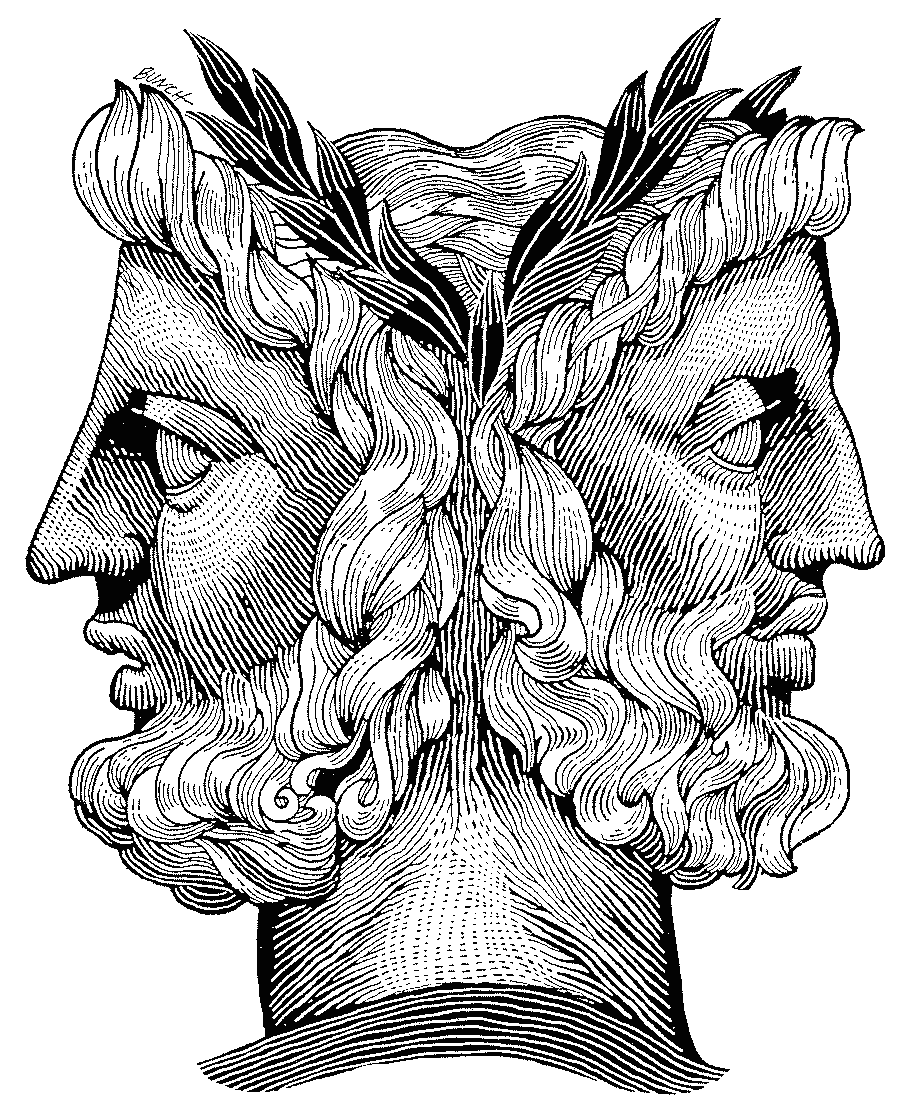Be that as it may, I think Janus is a far better candidate for the tutelary (it's such a good word I wanted to get it in again) role. After all, this is a time for looking both back to review the year just passing, and ahead to consider what will be happening during the next twelve months so his ability to look in both directions at once would seem perfectly suited to this time of the year.
I'm not at all sure that I want to look back over the year just gone. There was too much sadness, especially during the second half of the year. All I will say is that the 70th anniversary of D Day and the 100th anniversary of the outbreak of World War I were both suitable marked. This year will see even more multi-centenaries. Three in particular mark events which had and continue to have international reverberations.
Two hundred years ago, in June 1815, the Duke of Wellington defeated Napoleon at Waterloo. This finally stopped the French dictator from grabbing power across much of Europe: he had placed his relatives on the thrones of Spain and the kingdom of Naples and was intent on bringing the rest of the continent into subjugation. the battle also ensured that Britain became the dominant colonial power for the next hundred years and more.
Another battle had been fought almost four hundred years before Waterloo, in October 1415. This, too, was fought between British (albeit in this case, English) and French armies, at Agincourt (which the French call Azincourt). The size of the English army has been estimated at 7,000 (including 6,000 archers), while the French force may have numbered between 12,000 and 25,000, the majority of these being knights. You might think I'm stretching it a bit when I say that Agincourt has caused international ripples through the ages, but just consider this: Shakespeare, in his Henry V, wrote a speech which has been read and studied by students right across the world:
This story shall the good man teach his son;Listen to it here:
And Crispin Crispian shall ne’er go by,
From this day to the ending of the world,
But we in it shall be remembered-
We few, we happy few, we band of brothers;
For he to-day that sheds his blood with me
Shall be my brother; be he ne’er so vile,
This day shall gentle his condition;
And gentlemen in England now-a-bed
Shall think themselves accurs’d they were not here,
And hold their manhoods cheap whiles any speaks
That fought with us upon Saint Crispin’s day.
Going back another two hundred years to 1215, we reach the date when King John was "persuaded" to seal the Magna Carta. In their book, 1066 and All That, Messrs Sellar and Yeatman describe, somewhat facetiously, the history of Britain. Their summary of Magna Carta reads:
1. That no one was to be put to death, save for some reason - (except the Common People).But on a more serious note, Magna Carta is considered to be the basis of democracy and justice across much of the world. the American Bar Association paid for a memorial to be erected close to the site where the charter was sealed.
2. That everyone should be free - (except the Common People).
3. That everything should be of the same weight and measure throughout the Realm - (except the Common People).
4. That the courts should be stationary, instead of following a very tiresome medieval official known as the King's Person all over the country.
5. That no person should be fined to his utter ruin - (Except the King's Person).
6. That the Barons should not be tried except by a special jury of other Barons who would understand.
Magna Carta was therefore the chief cause of Democracy in England, and thus A Good Thing for everyone (except the Common People).
And so we will be commemorating events from 1215, 1415 and 1815. It seems rather strange that nothing very notable happened in 1615!


2 comments:
I would venture that no single notable thing occurred, but the the world, at large began to become much smaller through exploration and trade.
I don't think great historical events bother to look at the calendar before happening :) I have a feeling that Janus and Januarius might be from the same root. Looking back and looking forward though - highly appropriate. Happy 2015!
Post a Comment